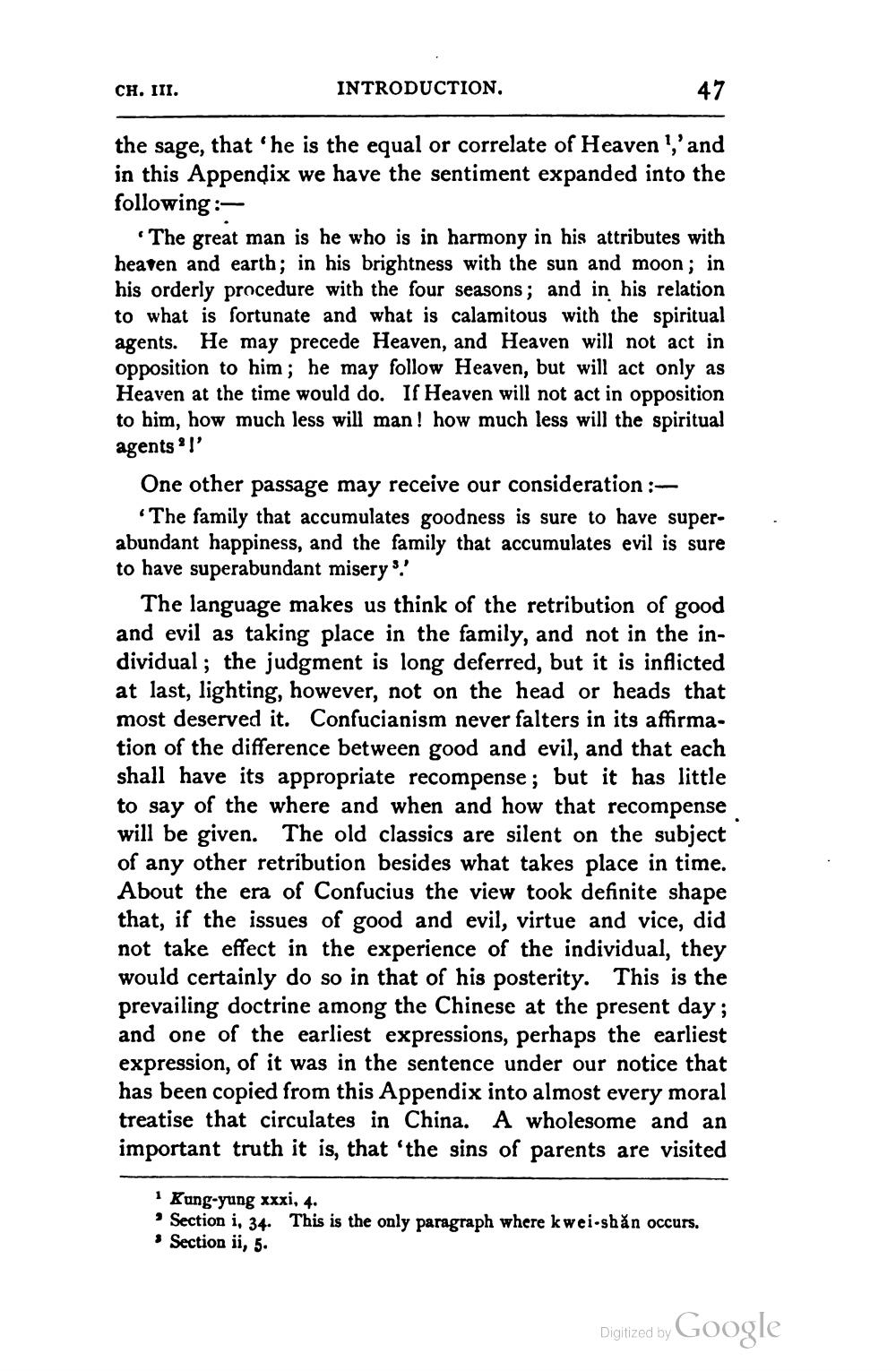________________
CH. III.
INTRODUCTION,
47
the sage, that he is the equal or correlate of Heaven',' and in this Appendix we have the sentiment expanded into the following:
The great man is he who is in harmony in his attributes with heaten and earth; in his brightness with the sun and moon; in his orderly procedure with the four seasons; and in his relation to what is fortunate and what is calamitous with the spiritual agents. He may precede Heaven, and Heaven will not act in opposition to him; he may follow Heaven, but will act only as Heaven at the time would do. If Heaven will not act in opposition to him, how much less will man ! how much less will the spiritual agents'l'
One other passage may receive our consideration :
The family that accumulates goodness is sure to have superabundant happiness, and the family that accumulates evil is sure to have superabundant misery
The language makes us think of the retribution of good and evil as taking place in the family, and not in the individual; the judgment is long deferred, but it is inflicted at last, lighting, however, not on the head or heads that most deserved it. Confucianism never falters in its affirmation of the difference between good and evil, and that each shall have its appropriate recompense; but it has little to say of the where and when and how that recompense will be given. The old classics are silent on the subject of any other retribution besides what takes place in time. About the era of Confucius the view took definite shape that, if the issues of good and evil, virtue and vice, did not take effect in the experience of the individual, they would certainly do so in that of his posterity. This is the prevailing doctrine among the Chinese at the present day; and one of the earliest expressions, perhaps the earliest expression, of it was in the sentence under our notice that has been copied from this Appendix into almost every moral treatise that circulates in China. A wholesome and an important truth it is, that 'the sins of parents are visited
Kung-yung xxxi, 4.
Section i, 34. This is the only paragraph where kwei-shăn occurs. • Section ii, 5.
Digitized by Google




